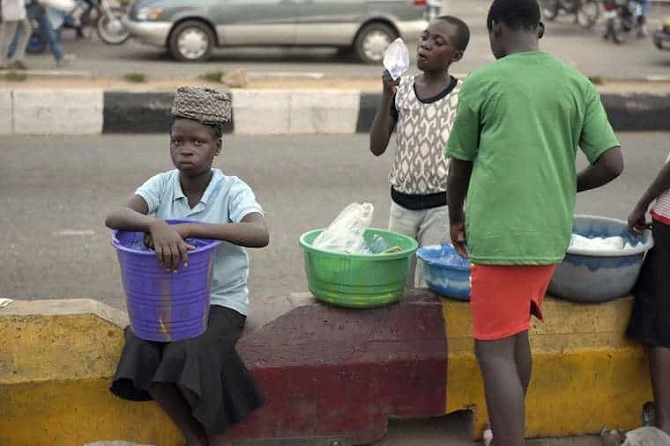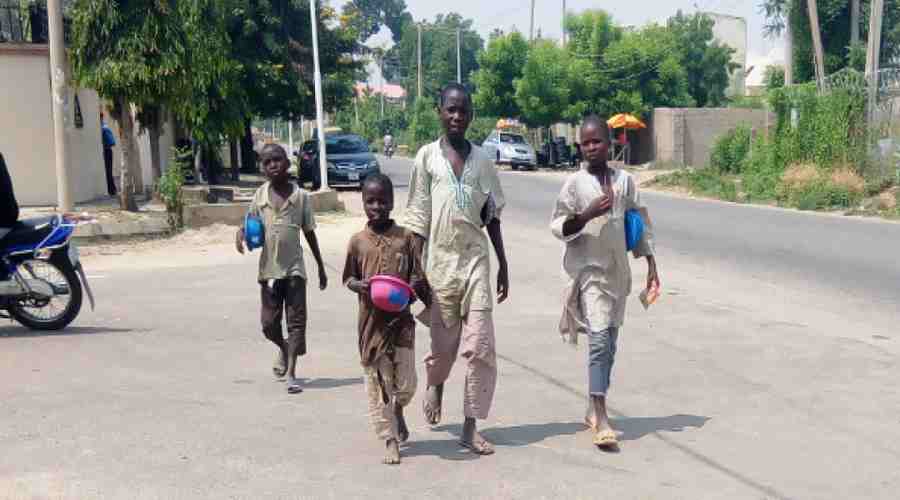North’s out-of-school children population time bomb – FG
The Minister of State for Education, Yusuf Sununu, yesterday described the number of out-of-school children, especially in northern Nigeria, as a time bomb that must be addressed. He spoke at the 2023 Bauchi Education Summit held at Dr Saad Abubakar Hajj Camp, Bauchi, with the theme: ‘Nurturing a flourishing future: Improving access and quality education […]

The Minister of State for Education, Yusuf Sununu, yesterday described the number of out-of-school children, especially in northern Nigeria, as a time bomb that must be addressed.
He spoke at the 2023 Bauchi Education Summit held at Dr Saad Abubakar Hajj Camp, Bauchi, with the theme: ‘Nurturing a flourishing future: Improving access and quality education in Bauchi State’.
The United Nations Children’s Fund (UNICEF) had recently said one in three children in Nigeria was out of school, totalling 10.2 million at the primary level and 8.1 million at the junior secondary school (JSS) level.
The governor of Kaduna State, Uba Sani, had, in October while meeting with senior citizens and elders in the state on the activities of his administration, put the number of out-of-school children in the state at 680,000.
UBEC will ensure every Nigerian child accesses basic education — Bobboyi
The North needs proactive leaders
Similarly, the governor of Gombe State, Inuwa Yahaya, had, at the sideline of the 78th session of the United Nations General Assembly in September, said his state had over 500,000 out-of-school children as of 2019 and that the number had risen to over 600,000.
The Sultan of Sokoto, Muhammad Sa’ad Abubakar III, had, in 2019, said parents of out-of-school children should face the full wrath of law for refusing to send their children to school.
Speaking at the Sultan Maccido Institute, Sokoto, in an event organised by the Sultanate Council to mark the international Day of Girl-child, Sultan had stressed that Islam was not against girl-child education. The minister yesterday said the rising figure of out-of-school children in Nigeria, particularly in the North, is not only unacceptable, but disheartening.
The minister said there must be concerted efforts to address and reverse the trend.

He said the federal government had taken steps to address the challenge with the newly established National Commission for Almajiri and Out-of-School Children, which is set to commence activities. He added that the commission would address issues and develop mechanisms for the integration of Tsangaya/Madarasa schools into Basic Education.
He said his ministry recently developed a road map captioned ‘Education for Renewed Hope’, a document that is aligned with the eight-point agenda of President Bola Tinubu.
He solicited the support and cooperation of Ulamas and proprietors of such schools as well as the sub-national level to come forward with similar agencies backed by state laws to serve the same purpose. He added that the move would facilitate better collaborations and synergy in addressing issues of out-of-school children and grant the Tsangaya schools the recognition and status they deserve.
He added that the challenges confronting the education sector could only be addressed by the efforts of all stakeholders.
Sununu commended Governor Bala Mohammed of Bauchi State for showing dedication and serious commitment towards improving the standard and quality of education in the state.
In his remarks, the governor said the summit centered on effectively addressing the issues unique to the state. He noted that the objective of the summit was to conduct a comprehensive assessment of the state of education in Bauchi, including the number of out-of-school children, their demographics, and the impact on education due to various challenges.
He added, “To convene all stakeholders, government officials, educators, parents, civil society organisations, and development partners to collaboratively address the state’s education challenges. To develop evidence-based programmes, policies and strategies towards addressing the challenges and strengthening our capacities and existing efforts.
“The summit will explore avenues for mobilising financial and human resources to support educational programmes and projects within the state; to devise innovative strategies for creating conducive learning environments, including repairing and revitalising schools.
“To actively involve all stakeholders, local and external, by increasing awareness and mobilising their support in our efforts to enhance the education sector in Bauchi State. To develop, discuss and implement specific interventions and initiatives tailored to address Bauchi State’s unique education challenges.”
3,963 teachers fail qualifying exam nationwide
Meanwhile, the Registrar of the Teachers Registration Council of Nigeria, (TRCN) Prof, Josiah Ajiboye, yesterday said 3,963 teachers who sat for the November 2023 diet of the Professional Qualifying Examination for teachers across the country failed.
The November diet, conducted by the TRCN to test the professional knowledge of those in the teaching profession, commenced on November 23 and ended on November 25.
AJiboyi, during an interactive session with journalists in Abuja on Monday, said a total of 15,753 teachers sat for the examination at 38 centres across the country, out of which 10,636 (72.9 per cent) passed and 3,963 failed.
“I think you will agree with me that it is a very good result as 72.9% of the candidates actually passed. Yes. That’s 10,600 seats out of 15,753, you agree with me that is a very good result. So, that is where we are presently,” he said.
He said other candidates were absent while others had their results cancelled due to examination malpractices and that all cases of malpractices reported were treated accordingly at the management level and their result was cancelled.
“All cases of examination malpractice were identified; they were caught on records because we have evidence against them. And then the cases were treated and discussed at the management level and their results were cancelled,” he said.
He said the council would continue to work towards the improvement of the teaching profession in Nigeria.
Speaking on qualified teachers, he said the council had 2.3 million teachers now registered, out of which over 400 000 had been licensed.
He said the council would beam its searchlight on the private schools in 2024, saying, “Over 83 per cent of teachers in public schools in Nigeria are qualified. The same thing cannot be said of teachers in private school.”
“A large percentage, less than 50 per cent of teachers in private schools are qualified. So, a large percentage of teachers in private schools are not even teachers in the first instance. They are not qualified to be in the class because a large number of them did not really do anything. They just find themselves doing the job,” he said.
While noting that it is getting clearer that teaching is not an all comers jobs, he said the council would take it up with states that were yet to employ teachers in the last 10 years, saying “In some states, you will see two to four teachers taking care of all the school with little knowledge on any subjects they teach.
Reacting to the failure of teachers, an educationist, Michael Sule, told Daily Trust that many teachers were not computer illiterate.
“Another factor is that many teachers have not been exposed to regular on the job training and as such may fail exams. So, it is important that they get training as regularly as possible and have adequate preparation before the examination, because teachers failing examinations doesn’t speak well of our education system,” he said.
Chairman, Association of Model Islamic Schools, Abuja Chapter and Founder, Voyage International Schools Abuja, Mallam Yussuff Oriyomi, stressed the need to ensure that the very best apply and study education at tertiary institutions.
“We can’t go far with accidental teachers. All stakeholders need to ensure we retain the very best to engage in teaching and reward them properly.
“As a nation, we need to invest more in teachers’ education, reward teachers and retain them through special offers such as special housing loans, free or discounted education for teachers’ children, among other incentives,” he said.
